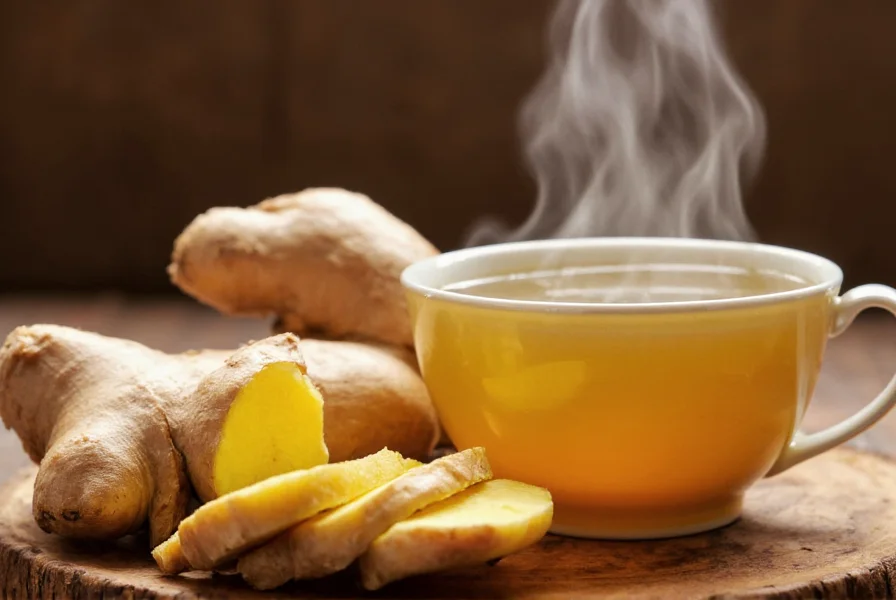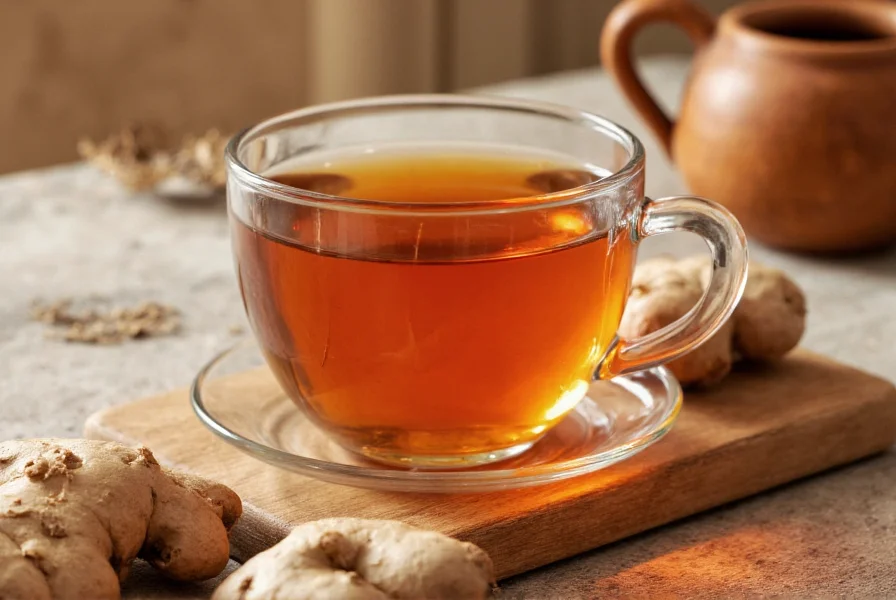Yes, ginger tea is generally good for you when consumed in moderation. Scientific research shows ginger tea offers multiple health benefits including improved digestion, reduced nausea, anti-inflammatory effects, and potential immune support. However, some individuals should limit consumption due to potential side effects or medication interactions.
For centuries, cultures worldwide have turned to ginger tea as a natural remedy for various ailments. This aromatic beverage, made from the rhizome of the Zingiber officinale plant, has transitioned from traditional medicine to evidence-based health practice. Modern research continues to validate many of ginger's purported benefits while clarifying appropriate usage guidelines.
The Science-Backed Benefits of Ginger Tea
Ginger contains bioactive compounds, particularly gingerols and shogaols, which give it potent medicinal properties. Unlike many herbal remedies with limited scientific backing, ginger tea benefits are increasingly supported by clinical research.
Digestive Health Support
One of ginger tea's most well-documented benefits is its positive impact on digestion. Studies show ginger can accelerate gastric emptying, reducing bloating and discomfort. Research published in the World Journal of Gastroenterology found that ginger significantly improved symptoms in patients with functional dyspepsia. When wondering is ginger tea good for digestion, the evidence suggests a resounding yes for most people.

Nausea and Motion Sickness Relief
Ginger tea has proven effective against various forms of nausea. A comprehensive review in Integrative Medicine Insights concluded that ginger outperforms placebos for pregnancy-related nausea, chemotherapy-induced nausea, and motion sickness. This makes ginger tea benefits for nausea particularly valuable for travelers and expectant mothers seeking natural remedies.
Anti-Inflammatory Properties
The gingerols in ginger tea demonstrate significant anti-inflammatory effects. Research in Arthritis & Rheumatism showed that ginger extract reduced pain and stiffness in osteoarthritis patients. While ginger tea contains lower concentrations than extracts, regular consumption may contribute to managing chronic inflammation. Those searching for ginger tea benefits for inflammation will find promising, though moderate, scientific support.
Potential Side Effects and Considerations
While generally safe, ginger tea isn't appropriate for everyone. Understanding these considerations helps answer is ginger tea good for you with necessary nuance.
Medication Interactions
Ginger may interact with certain medications, particularly blood thinners like warfarin. The compound gingerol has mild anticoagulant properties, potentially increasing bleeding risk when combined with these medications. Always consult your healthcare provider if you take prescription medications before making ginger tea a daily habit.
Digestive Sensitivity
Some individuals experience heartburn or stomach upset with ginger consumption. Those with gastroesophageal reflux disease (GERD) may find ginger tea exacerbates symptoms. If you're sensitive, try smaller quantities or consult a healthcare professional about is ginger tea good for acid reflux.
| Benefit | Scientific Support Level | Recommended Daily Amount |
|---|---|---|
| Nausea relief | High (multiple clinical trials) | 1-1.5g ginger (approx. 1 cup tea) |
| Digestive support | Moderate (several studies) | 1-3g ginger (1-3 cups tea) |
| Inflammation reduction | Moderate (preliminary studies) | 2-4g ginger (2-4 cups tea) |
| Immune support | Preliminary (limited human studies) | No established amount |
Maximizing Ginger Tea Benefits
To get the most from your ginger tea, preparation matters. Fresh ginger generally contains higher concentrations of active compounds than dried or powdered forms. For optimal extraction:
- Use 1-2 inches of fresh ginger root per cup of water
- Simmer (don't boil) for 10-15 minutes to preserve volatile compounds
- Add lemon to enhance antioxidant absorption
- Include a small amount of healthy fat (like coconut milk) to improve bioavailability of fat-soluble compounds
Those exploring how to make ginger tea for maximum health benefits should note that longer steeping times increase potency but may also increase the likelihood of digestive upset for sensitive individuals.

Who Should Limit Ginger Tea Consumption
While ginger tea benefits many people, certain groups should exercise caution:
- Pregnant women: Though effective for morning sickness, consult your healthcare provider about appropriate amounts
- Individuals with gallstones: Ginger may increase bile production
- Those scheduled for surgery: Discontinue use at least one week prior due to potential bleeding risks
- People with low blood pressure: Ginger may further lower blood pressure
Conclusion: Is Ginger Tea Good for You?
The evidence strongly supports ginger tea as a beneficial beverage for most people when consumed in appropriate amounts. Its digestive benefits, anti-nausea properties, and anti-inflammatory effects make it a valuable addition to a healthy lifestyle. However, like any natural remedy, it's not universally appropriate, and moderation remains key. When considering is ginger tea good for u, the answer depends on your individual health circumstances, but for the average healthy adult, the benefits typically outweigh potential risks.











 浙公网安备
33010002000092号
浙公网安备
33010002000092号 浙B2-20120091-4
浙B2-20120091-4